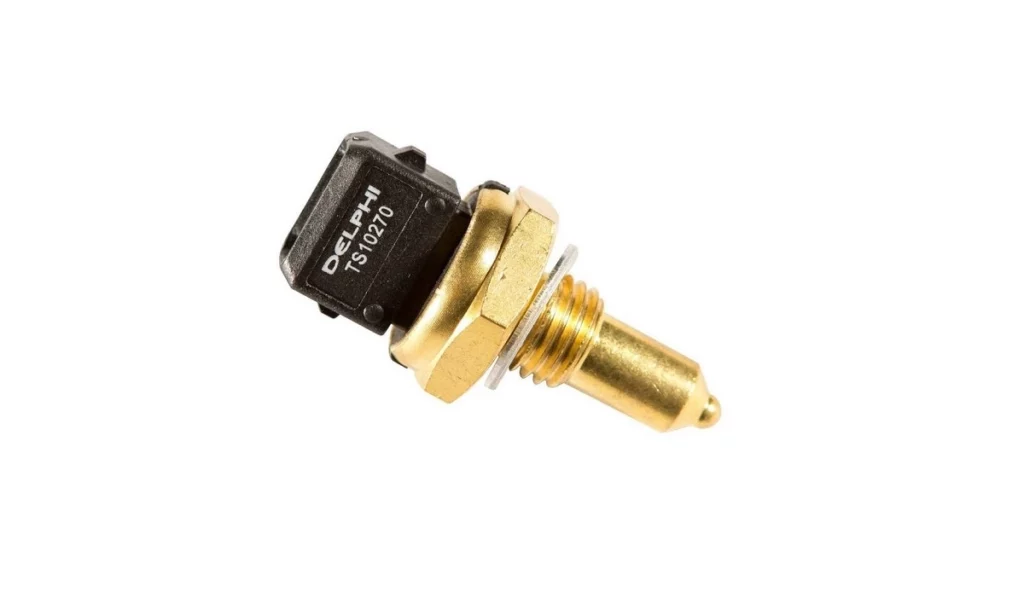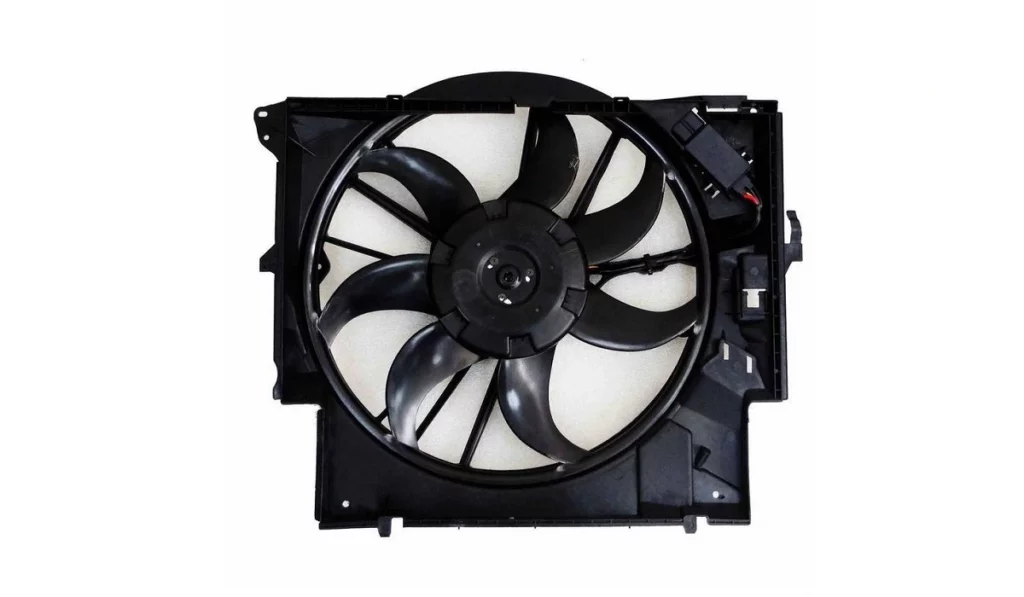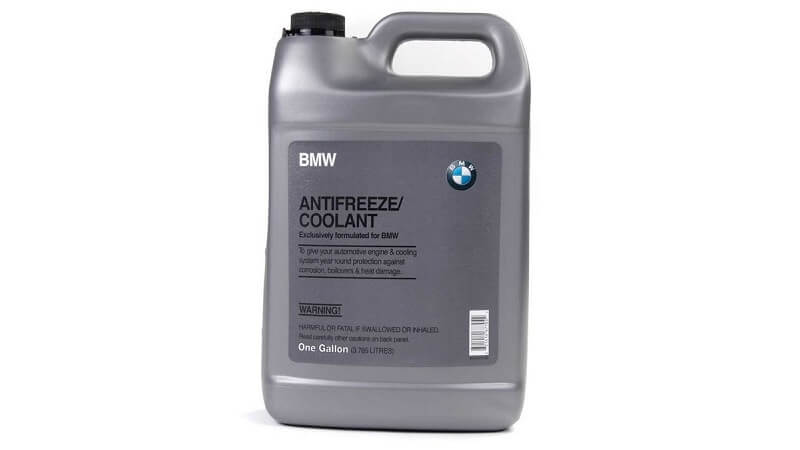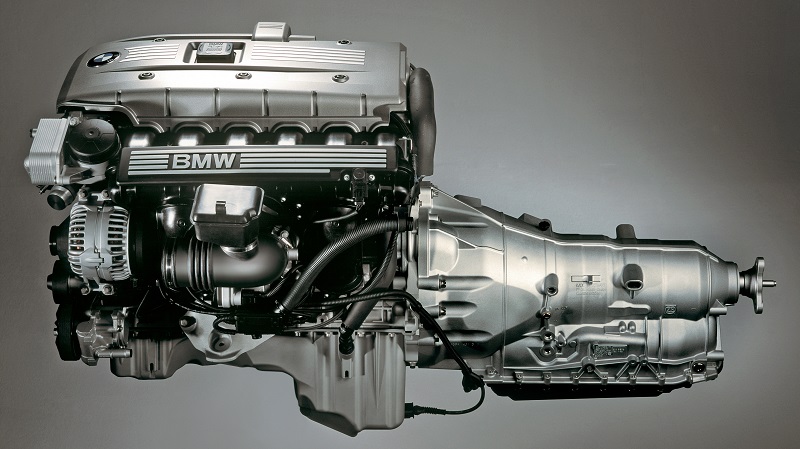Welcome to our guide on decoding the 2EFF BMW code, a signal that often points directly to the cooling system’s fan self-diagnosis. Understanding this code is crucial for maintaining optimal engine performance in the intricate world of BMW diagnostics. The 2EFF BMW code is not just a random set of numbers and letters; it signifies a specific issue that requires attention, particularly the radiator’s electrical fan self-diagnosis.
In this blog post, we’ll explore the importance of troubleshooting the 2EFF BMW code, cracking common symptoms, following diagnostic steps, and providing insights into the fan system components, potential causes, effective solutions, and preventive measures to keep your BMW running smoothly. Let’s dive in!

Understanding the 2EFF BMW Code
The 2EFF BMW code is more than just a combination of characters; it indicates an electrical fault related to the vehicle’s cooling system and, more precisely, the fan self-diagnosis mechanism. Let’s break it down:
The Significance of 2EFF BMW Code
The 2EFF BMW code is directly linked to the fan control system, a critical component for regulating engine temperature. In BMW vehicles, precise temperature control is essential for optimal performance and longevity.
Fan Self-Diagnosis: How it Works?
Fan self-diagnosis is a sophisticated feature designed to ensure the cooling fan operates at the right times and speeds. This is vital for preventing the engine from overheating, especially during demanding or prolonged idling. Here’s how it works:
When you start your car, the Digital Motor Electronics (DME) briefly turns on the electric fan at a low speed and then turns it off. This brief action is part of a check-up process to ensure the fan works properly. As the fan slows down, it creates a small amount of electrical power — acting like a generator. The DME then compares this power with what it expects to ensure the fan functions as it should. Pretty neat, right?
Why Fan Control Matters?
Effective fan control prevents overheating and contributes to improved fuel efficiency and reduced emissions. The system’s ability to self-diagnose ensures swift responses to potential issues, maintaining the engine’s health and overall performance.
Engine’s Cooling System Components
Understanding the components of the engine’s cooling system is crucial for pinpointing issues related to the 2EFF BMW code. After all, knowing how a system works is the first step to finding out what went wrong. Let’s jump into the critical elements of the engine cooling system:
Cooling Fan and Fan Control Module
The cooling fan and its module are among the primary components regulating engine temperature. It is activated based on sensor temperature inputs, ensuring efficient cooling during operation. Based on the DME’s request, the fan control module governs the fan’s speed and operation.
Temperature Sensors
Sensors strategically placed in the engine monitor temperature fluctuations. These temperature sensors send data to the DME to activate the radiator fan based on the engine’s thermal needs.

Coolant
It is a liquid mixture that is made of antifreeze and water. Proper coolant levels and quality are essential for effective heat dissipation. Insufficient coolant or coolant contamination can contribute to overheating issues.
Water Pump
The water pump is a vital cooling system component that circulates coolant (water and antifreeze) through the engine, radiator, and heating system. It is usually driven by a belt connected to the engine or electronically and works to maintain the engine’s temperature within optimal limits, preventing overheating. The water pump ensures consistent engine performance and temperature regulation by continuously moving the coolant.
Thermostat
This thermostat helps regulate the engine’s temperature by controlling the coolant flow to the radiator. It operates by opening or closing at certain temperatures to maintain the optimal operating temperature of the engine. This ensures the engine warms up quickly and maintains a consistent temperature for efficient performance.
We Offer the Best Prices on Genuine BMW Parts
Fixing the 2EFF BMW code and ensuring it doesn’t appear again depends on the parts you use in your repair. As you probably know already, going with a genuine BMW is the best way to go. However, genuine BMW parts are often seen as expensive and are often outside the budget of BMW owners trying to maintain their cars without destroying their wallets. That’s not the case if you shop with us!
At Bimmers.com, we offer the best prices on genuine BMW parts anywhere online. Our catalog features a wide range of part numbers that are available at sharp prices. You no longer have to avoid genuine BMW parts. Shop with us, get the quality you need, and save!
Common Symptoms of the 2EFF BMW Code
When your BMW triggers the 2EFF code related to fan self-diagnosis, it often manifests through various symptoms. Recognizing these signs is crucial for timely intervention and preventing potential damage to the engine. Let’s explore some common symptoms associated with the 2EFF BMW code:
Inconsistent Fan Operation Resulting in 2EFF BMW Code
The cooling fan might exhibit irregular behavior, such as running continuously even when not required or not activating when needed. These inconsistencies point to potential issues with the radiator fan’s self-diagnosis mechanism.
Overheating Engine
One of the primary indicators is an overheating engine. The fan, regulated by the self-diagnosis system, may not function optimally, leading to increased engine temperatures.
Why is my BMW cooling fan always on?
Your BMW’s cooling fan may continuously run for multiple reasons. Firstly, your DME could sense that your engine might be overheating, and the radiator fan running at full blast is just a response to cooling down the engine as soon as possible. Secondly, the cooling fans could run like a jet if your DME is in limp-home mode.
In simpler terms, the limp-home mode is a safety feature that allows vehicles to continue operating at reduced speed and functionality when certain system failures occur. In this case, even if the engine is not overheating, the DME will activate the cooling fan to the maximum to ensure the engine will not overheat until you have reached the nearest workshop or your residence.
Reduced Air Conditioning Performance
A radiator fan that is not working can impact the performance of your air conditioning system. If this is the case, your engine will likely overheat, giving you an overheating alert on your dash.
Engine Misfires or Performance Issues
The engine may experience misfires or reduced performance due to elevated temperatures. The radiator fan’s failure to regulate temperature can have a cascading effect on overall engine efficiency and, most importantly, its health.
Unusual Fan Noises
Listen for any abnormal sounds coming from the fan. Clanking, grinding, or excessive noise can indicate mechanical issues that need attention.
Potential Causes of the 2EFF BMW Code
Identifying potential causes behind the 2EFF BMW code related to fan self-diagnosis is essential for targeted troubleshooting. Here, we outline common culprits that may lead to issues within the cooling system:

Faulty Cooling Fan
A faulty cooling fan can lead to multiple consequences, including overheating, non-function of air conditioning, and the sly 2EFF BMW code.
Defective Fan Control Module
The fan control module, integrated into the radiator fan, can also cause the 2EFF BMW code to appear. This module regulates the operation of cooling fans, and if faulty, it may lead to insufficient cooling, resulting in overheating. This can trigger performance issues and potential long-term damage to the engine.
Wiring and Connector Problems
Wiring and connector problems in electronic devices can lead to various issues. When the wiring or connections are loosely connected or faulty, it can result in intermittent connections, electrical shorts, or open circuits. This, in turn, may cause malfunctions or damage to connected components.
Mechanical Blockages
Mechanical blockages on the radiator fan shroud or blades can also cause the 2EFF BMW code to pop up. This is because it can hinder the diagnostics procedure during start-up, as we covered in how the self-diagnosis works.
Diagnostic Steps To Cure 2EFF BMW Code
You must have a systematic approach for troubleshooting the 2EFF BMW code related to fan self-diagnosis. Here, we outline step-by-step diagnostic procedures to identify and address potential issues within the cooling system:
Scan for Fault Codes
Utilize a diagnostic scanner to retrieve and interpret fault codes, including the 2EFF BMW code. This initial step provides a starting point for further investigation.
Examine Fan Blades and Shroud
Inspect the fan blades and shroud for damage or obstructions. Debris or physical damage can hinder proper fan rotation, affecting its ability to cool the engine.
Inspect Fan Operation
Manually check the operation of the cooling fan. Ensure it turns freely and listen for any unusual noises. If the fan is not operating correctly or not operating at all, it signals a potential problem.
Check the Fan Control Module
Evaluate the fan control module for signs of damage or overheating. This component is crucial for regulating fan speed based on temperature inputs.

Inspect Wiring and Connectors
Examine the wiring harness and connectors for any signs of wear, corrosion, or loose connections. Faulty wiring can disrupt the communication between components.
Can you clear fault codes?
Yes, you can delete the fault code; however, if the root cause of the issue is still present, it will just come back after some time or even right away. Deleting the fault code is a good practice after you have replaced a part to confirm if the problem is fixed.
Effective Solutions and Fixes For 2EFF BMW Code
Addressing the 2EFF BMW code related to fan self-diagnosis involves implementing targeted solutions to rectify identified issues. Here are practical fixes for common problems within the cooling system:
Do car error codes clear themselves?
The car’s internal computer only resets after rechecking all its sensors. The reset may occur automatically after 10 to 20 cycles. A cycle is a period in which you start and stop your car.
Clear Mechanical Blockages
Remove any debris or address damage to fan blades and shrouds that may obstruct proper fan operation. Ensure the fan can rotate freely.
Replacing the Faulty Cooling Fan and its Control Module
If the cooling fan and its control module are found to be malfunctioning or seized, replacement is often necessary. Ensure the new fan assembly is compatible with your BMW model.
Address Wiring and Connector Issues
Repair or replace damaged wiring and connectors to ensure seamless communication between components. Properly secure all connections.
Perform System Reset
After addressing the identified issues, follow the manufacturer’s guidelines to perform a system reset. This step can clear fault codes and optimize the functionality of the cooling system.
Preventive Measures
Preventing the recurrence of the 2EFF BMW code and maintaining the health of your BMW’s cooling system involves adopting proactive measures. Here are key preventive steps to ensure sustained performance:
Regular Maintenance Checks
Schedule routine maintenance checks to inspect the cooling system components, including the cooling fan, water pump, thermostat, temperature sensors, and wiring. Address any signs of wear or damage promptly.
Fan and Shroud Inspection
Include fan and shroud inspection in your regular maintenance routine. Clear any debris and ensure the components are free from damage.
Fix the 2EFF BMW Code Using the Quality BMW Parts
BMW cars are known for their outstanding performance; however, they, too, are susceptible to faults and defects like any other car. And when it shows the 2EFF BMW code, you know it is a red flag — a fault in radiator electrical fan self-diagnosis. If your BMW has already started talking in these codes, you need to rush to get it repaired.
Now that you’ve reached this section, it clearly shows that you are concerned about the problem and understand what to do when the 2EFF BMW code appears, what is causing such an issue, what its symptoms are, and how to fix it.
The only thing left is to consider the correct parts for your BMW. Here at Bimmers.com, we sell a wide variety of genuine BMW, OEM, and high-quality aftermarket parts for your BMW car. Visit our store, select your vehicle type, and you are good to go to find parts guaranteed to fit perfectly in your BMW.





